This is an old revision of this page, as edited by 24.116.221.5 (talk) at 20:53, 11 September 2008. The present address (URL) is a permanent link to this revision, which may differ significantly from the current revision.
Revision as of 20:53, 11 September 2008 by 24.116.221.5 (talk)(diff) ← Previous revision | Latest revision (diff) | Newer revision → (diff)history rules! so does the people in it!!!!!!!!!!!!!!!! hehehehe |} The Greatest American was a four-part television series hosted by Matt Lauer in which millions of Americans nominated and elected who they thought was the greatest person in U.S. history. The competition was conducted by AOL and the Discovery Channel and reported on by the BBC.
Nominations were accepted through January 31, 2005. The 7-hour-long series was broken into 4 episodes: The first episode counted down the top 100 and introduced the top 25 nominees in alphabetical order. The second episode featured biographies of the top 25 nominees as well as commentaries from influential people such as celebrities and politicians. The third episode, called "The Great Debate", introduced the top 5 nominees and pitted the studio audience supporters of each of the nominees and a person selected to represent each of the top 5 candidates against a panel of 3 celebrities. In the finale the top 5 "Greatest Americans" were announced as well as what percentage of the votes each had received. Votes were taken through a toll free (if calling from a land line) phone number, through text messages from cell phones, and through online voting. Voters were allowed to vote three times per voting method, so anyone had a chance of voting at least nine times. The three states with the most votes being received were California, Texas, and Florida (ranked 1st, 2nd, and 4th in population).
The Top 25
| This template is a customized wrapper for {{]}}. Any field from {{]}} can work so long as it is added to this template first. Questions? Just ask here or over at ]. |
|
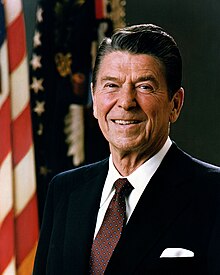
the 40th President of the United States, introduced laissez-faire economic policy, and contributed to the ending of the Cold War.
|-
|
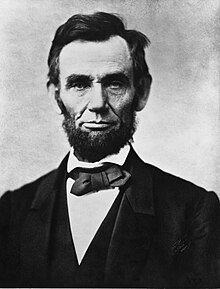
president during the American Civil War and wrote the Emancipation Proclamation.
|-
|

|-
|

known to many as the "Father of the United States" was America's first president.
|-
|

one of the most famous founding fathers of the United States.
|-
|-
|
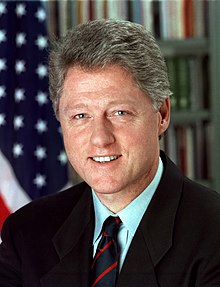
was president during a period of economic growth and prosperity.
|-
|
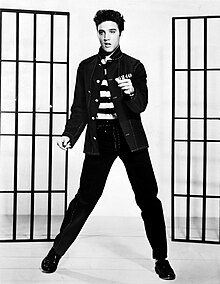
was dubbed the king of rock n' roll, and revolutionized American music.
|-
|
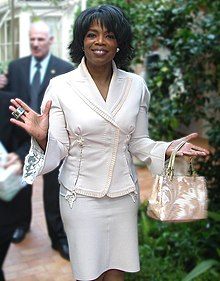
was dubbed the Queen of media and one of America's wealthiest.
|-
|}
- Ronald Reagan - 24%
- Abraham Lincoln - 23.5%
- Martin Luther King, Jr. - 19.7%
- George Washington - 17.7%
- Benjamin Franklin - 14.9%
- George W. Bush
- Bill Clinton
- Elvis Presley
- Oprah Winfrey
- Franklin D. Roosevelt
- Wernher von Braun
- Thomas Jefferson
- Walt Disney
- Albert Einstein
- Thomas Alva Edison
- John F. Kennedy
- Bob Hope
- Bill Gates
- Eleanor Roosevelt
- Lance Armstrong
- Muhammad Ali
- Rosa Parks
- The Wright Brothers
- Henry Ford
- Neil Armstrong
Alphabetical list
On April 18,2005, AOL and The Discovery Channel announced the top 100 nominees.
The remaining nominees:
- Maya Angelou
- Susan B. Anthony
- Lucille Ball
- Alexander Graham Bell
- Barbara Bush
- George H. W. Bush
- Harry Callahan
- Andrew Carnegie
- Johnny Carson
- Jimmy Carter
- George Washington Carver
- Ray Charles
- César Chávez
- Hillary Rodham Clinton
- Bill Cosby
- Tom Cruise
- Ellen DeGeneres
- Frederick Douglass
- Amelia Earhart
- Clint Eastwood
- John Edwards
- Dwight D. Eisenhower
- Brett Favre
- Mel Gibson
- Rudy Giuliani
- John Glenn
- Alexander Hamilton
- Tom Hanks
- Hugh Hefner
- Katharine Hepburn
- Howard Hughes
- Michael Jackson
- Steve Jobs
- Lyndon B. Johnson
- Michael Jordan
- Helen Keller
- Jacqueline Kennedy Onassis
- Robert F. Kennedy
- Rush Limbaugh
- Charles Lindbergh
- George Lucas
- Madonna
- Malcolm X
- Dr. Phil
- Marilyn Monroe
- Michael Moore
- Audie Murphy
- Richard M. Nixon
- Barack Obama
- Jesse Owens
- George S. Patton
- Colin Powell
- Christopher Reeve
- Condoleezza Rice
- Jackie Robinson
- Theodore Roosevelt
- Babe Ruth
- Chuck Norris
- Jonas Salk
- Arnold Schwarzenegger
- Frank Sinatra
- Joseph Smith, Jr.
- Steven Spielberg
- James Stewart
- Martha Stewart
- Nikola Tesla
- Pat Tillman
- Harry Truman
- Donald Trump
- Harriet Tubman
- Mark Twain
- Sam Walton
- John Wayne
- Tiger Woods
- Chuck Yeager
Facts about The Greatest American
- Men: 85 (the Wright brothers are given a single entry)
- Women: 15
- Living nominees: 42
- African Americans: 16
- White Americans: 83
- Nominees by area: (halves are awarded if a nominee exceeded in two areas e.g. Eisenhower is under Military and U.S. Presidents)
- Television, Cinema and Radio: 23
- U.S. Presidents: 14.5
- First Ladies: 5
- Other Political Figures: 15.5
- Science: 9.5
- Sports: 8.5
- Music: 5
- Business and Industry: 5
- Aviators and Astronauts: 5
- Military: 4.0
- Literature: 3
- Religion: 2
- Publishers: 1
- Several of the 100 had considerable links to other countries:
- Einstein was born in Germany, but had to flee the country when the Nazis rose to power. At various times of his life was also a citizen of Austria-Hungary, Switzerland, and the US. He was also offered the presidency of Israel at one point.
- Alexander Graham Bell lived in Scotland for the first 23 years of his life, immigrated to Canada, and later died and was buried there.
- Andrew Carnegie was also born in Scotland
- Mel Gibson lived for about 10 years in Australia starting at about age 12 before returning to the US.
- Arnold Schwarzenegger grew up in Austria and immigrated to the U.S. aged 21
- Nikola Tesla (Никола Тесла) was a Serb born in the Austrian Empire and immigrated to the U.S. aged 28
- Bob Hope was born in the United Kingdom, immigrated to the U.S. in 1908 aged 5, and became a U.S. citizen at age 17.
Comments and criticisms
- Many viewers and media commentators have criticized the shortlist as being extremely androcentric, with only a handful of female politicians, athletes, innovators and entertainers making the cut. Rosa Parks, Eleanor Roosevelt and Oprah Winfrey are the only three females in the Top 25.
- Much criticism has been made of the overselection of entertainers, and a bias towards recent times at the expense of those who lived in the 18th or 19th centuries.
- Others have complained about the selection of the then recently deceased Ronald Reagan as the Greatest American, ahead of Abraham Lincoln, often called the Greatest President, George Washington, the first leader of the country, and Thomas Jefferson, author of the Declaration of Independence. Some criticism was leveled at the biased voting in the final five, which allowed votes to be split between Washington, Lincoln, King, and Franklin and partisan votes allowed Reagan to win, critics argue that if the voting was runoff based Reagan would not have placed as high.
- Others have complained about the inclusion of Bill Clinton who was impeached by the House (though acquitted by the Senate). George W. Bush was selected as the "Greatest Living American" despite an approval rating below 50% at the time, however the ranking was also reflected by an end of year Gallup poll, finding Bush to be the most admired living man in America. The fact that Gallup also found Bill Clinton to be the second most admired living man in America was also consistent with the Greatest American poll..
- There were objections to many candidates being eligible because of the country in which they were born. For example, Albert Einstein, Bob Hope, Andrew Carnegie, Nikola Tesla and Arnold Schwarzenegger, were born in Germany, England, Scotland, Austria-Hungary (Serbian) and Austria respectively. All 5 were naturalized U.S. citizens, though Einstein was only naturalized well after his major contribution to science.
Alexander Graham Bell also appeared on the Canadian version of the show, The Greatest Canadian, and the original British program, Great Britons, where he ranked ninth and fifty-seventh place respectively. The scientist, inventor, and founder of the Bell Telephone Company was born in Edinburgh, Scotland in 1847, before moving to Brantford, Ontario in 1870. Three years later, Bell relocated to Boston, Massachusetts to continue his research into vocal physiology. He became a naturalized citizen of the United States, though he maintained an estate and laboratory in Canada, and where he would place the first telephone call in 1876, between Brantford and Paris Ontario. He died and was buried in Canada, though his tombstone bears the prominent line "citizen of the United States." Thus, all three countries make a claim to him.